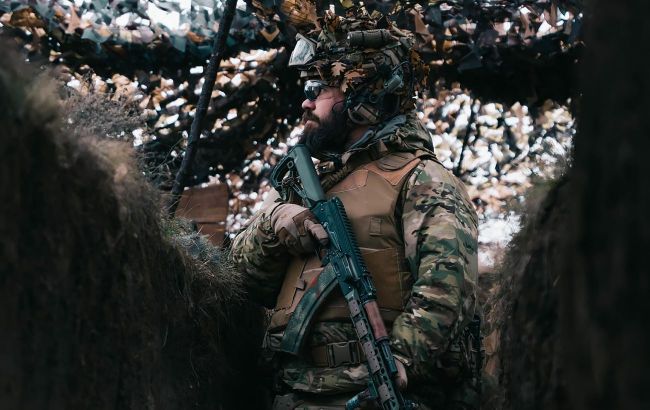ISW explains factors that can help Ukrainian forces to carry out successful counteroffensive
 The defense forces can accumulate reserves for a counteroffensive operation against Russia (photo: State Border Guard Service of Ukraine)
The defense forces can accumulate reserves for a counteroffensive operation against Russia (photo: State Border Guard Service of Ukraine)
Russia is beginning to experience a shortage of weapons and personnel. This, combined with support from Western partners, will eventually enable the Ukrainian Armed Forces to conduct successful counteroffensive operations, according to a report from the Institute for the Study of War (ISW).
The Institute cites an interview with General Oleksandr Syrskyi published in The Guardian, where he stated that over the past two and a half years, Russian forces have significantly increased their human and material resources for the war against Ukraine.
However, the report notes that Syrskyi's statements do not indicate a sudden increase in the presence of Russian troops in Ukraine but rather reflect the personnel and material shortages that Ukrainian forces have been facing for over two years.
The General also highlighted that Ukrainian military leadership is focused on addressing supply issues to defend against prolonged Russian offensives. He emphasized that despite the material disparity between Russian and Ukrainian forces, Ukrainian troops are successfully conducting defensive operations.
The ISW believes that, in the medium to long term, Russia will no longer be able to increase its manpower and equipment for the war against Ukraine.
Analysts at the Institute for the Study of War (ISW) note that Russia is depleting its limited stock of Soviet-era weaponry. However, it remains unclear whether the Russian defense industry can produce enough equipment to sustain the high levels of equipment losses even with further economic mobilization.
"Further economic mobilization will likely be deeply unpopular among Russians who are largely apathetic towards the war so long as it does not impact their daily life, and the policy change could strain domestic support for the war," the report states.
The ISW believes that the Kremlin will likely need to further mobilize the Russian economy and defense industry to sustain the current pace of operations in the medium to long term.
Meanwhile, Syrskyi's statements demonstrate that over the past two and a half years, Ukrainian forces have successfully defended and liberated territory in the face of a Russian military with significant manpower and material advantages over the Ukrainian Armed Forces.
"ISW continues to assess that Ukrainian forces can contest the battlefield initiative and eventually set conditions to conduct both limited and large-scale counteroffensive operations with timely and appropriate Western security assistance," the Institute's report concludes.
Situation on the front and the shelling of Ukraine
Russian forces have conducted another cross-border raid and are actively advancing in the Donetsk region.
On Wednesday, July 24, Russian forces repeatedly shelled Kharkiv and the Kharkiv region.
During the day, the Russian army struck the city center with a guided aerial bombs. Around midnight, explosions were heard again in Kharkiv due to another Russian attack.
Last night, Russian forces once again launched a large-scale drone attack on Ukraine using Shahed-type drones.


